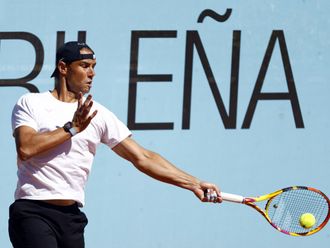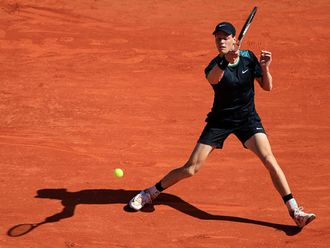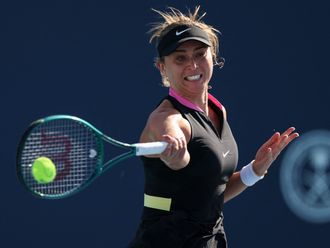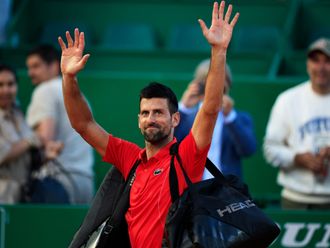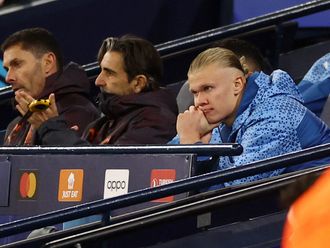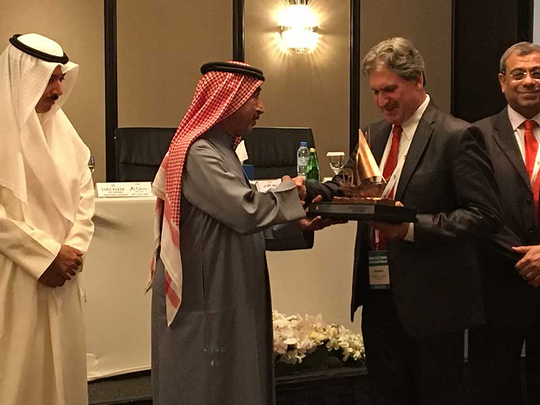
Dubai: The International Tennis Federation (ITF) is keen to rope in Asia in a bigger role as part of the governing body’s plan for the future.
Explaining the salient features of ‘ITF 2024’ that was unveiled in mid-2016, federation president David Haggerty admitted the need to tap the vast potential for tennis all over the world, especially in Asia.
The ITF 2024, launched at its Annual General Meeting (AGM) in Zagreb last year, is a new strategic plan for creating a long-term strategy for sustainable growth of the sport. The American, who was elected to replace Italian Francesco Ricci Bitti as President last September, outlined the ITF’s mission to develop, grow and promote tennis around the world through good governance, integrity and trust, inclusiveness, innovation, ambition and collaboration.
“We haven’t spent much time here with the development of tennis,” Haggerty admitted on the sidelines of a development seminar for countries in the West Asia region at the Roda Al Bustan Hotel on Thursday. Shaikh Hasher Al Maktoum, President, Tennis Emirates was the chief guest along with key personnel including Anil Khanna, President of Asian Tennis Federation (ATF), Miguel Crespo, Manager, Participation and Coaching at ITF and Amir Borghei, Development Officer for West and Central Asia, among others.
“After football, it is tennis that holds the maximum potential. To start with, it is among the most watched sport. Now we need to turn this following into a few stars emerging from this region,” Haggerty related.
Khanna, who is also vice-president of the ITF, observed that the governing body needs to seek fresh avenues to inject revenue into the sport. “Davis Cup and Fed Cup are key areas, but we need to find ways to get additional funding from the Grand Slams that can be diverted into development of tennis at grassroots level,” Khanna said.
“In tennis, we have a problem as there are four governing bodies — the ATP, the WTA, the four Grand Slams and the ITF — and all of them are some how involved in looking after the sport. Maybe, we just need one single body,” he offered.
“On our part, we would be happy to see new revenue streams in tennis. But this to happen, we need to create a level playing field. The junior wing of the ITF has had a tremendous success with its grassroots programmes and that is why we have some exciting stars in tennis today. The end result is that Grand slams make huge amounts of money on tennis. And I think we need a better distribution of this cash into the world of tennis,” Khanna added.
Sarah Ahmad Baker, Vice-President, ATF and General Secretary, Tennis Emirates pushed for an increase in the number of tournaments at the grassroots level along special competitions for girls in the West Asia region. “If we need to create this base of young players then we need to cater to several issues that will help us tackle problems such as training of specialised staff, a unified rankings system along with the presence of well-trained personnel,” Baker observed.


